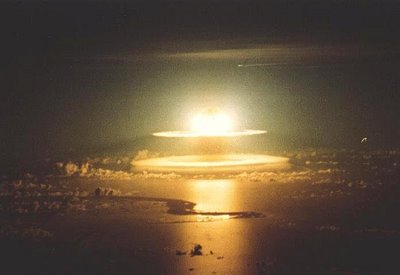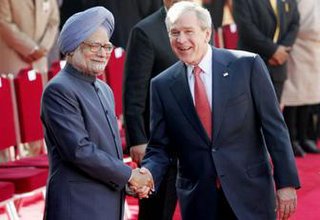Four members of the so-called "Christian Peacemaker Teams" were kidnapped four months ago by Muslim terrorists. One, an American, was tortured and brutally murdered. Today the three surviving hostages were rescued by British and American troops without casualties.
You'd think that CPT might express some gratitude to the soldiers who risked their lives rescuing these hostages. But no, CPT's statement of early today appears more consumed with anti-military rhetoric than real gratitude for those who selflessly secured the rescue of their friends.
"We pray that Christians throughout the world will, in the same spirit, call for justice and for respect for the human rights of the thousands of Iraqis who are being detained illegally by the U.S. and British forces occupying Iraq... We believe that the illegal occupation of Iraq by Multinational Forces is the root cause of the insecurity which led to this kidnapping and so much pain and suffering in Iraq. The occupation must end.
I'm sure CPT is very happy over their friends' return, but not very happy at all that British and American forces were instrumental in freeing them. This rang loud and clear in CPT's public statement.
Evidently CPT heard from more than a few individuals who excoriated them for the ingratitude of their statement which stood throughout most of the day. Tonight CPT posted on its website an "addenda", which acknowledged the soldiers:
"We are grateful to the soldiers who risked their lives to free Jim, Norman and Harmeet. As peacemakers who hold firm to our commitment to nonviolence, we are also deeply grateful that they fired no shots to free our colleagues."
Am I being harsh on CPT, considering these people are still grieving the murder of their colleague, Tom Fox? I don't think so. Their grief did not prevent them from blaming the rescuers for causing the kidnapping and "so much pain and suffering in Iraq" through their "illegal occupation".
CPT's "addenda", published after a day of public outrage at the organization's ingratitude and political exploitation of the kidnapping and rescue, rings hollow.






